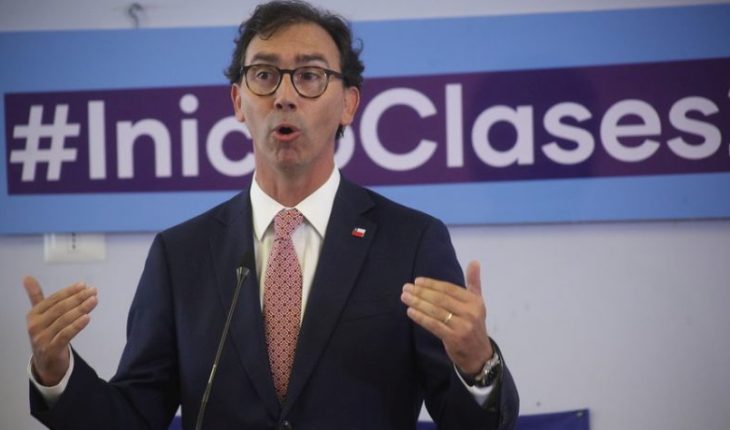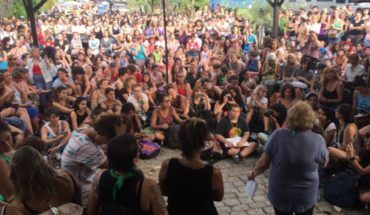“Health decisions are made by the health authority, the Ministry of Health, the respective seremi and we are in coordination.” “As Education what we do is to collaborate so that these suspensions do not alter the learnings of the children,” said Education Minister Raúl Figueroa this morning, in the face of the measures prepared by the portfolio against the coronavirus.
“The health measures to be taken by schools must be taken with the authorization of the health authority, and in general terms, an establishment that wants to suspend a day or a week classes must do so in coordination and with authorization from the ministry. You have to make sure that these classes can recover in some way,” he said on Radio Universo.
“We are taking steps to enable schools to maintain contact with their students and their proxys. There are different mechanisms that are not sophisticated, some free, that allow to deliver tasks, material, guides. In addition, we are working on support material that allows weekly follow-up to curriculum subjects that, at the event to be suspended, schools and teachers can maintain direct contact.”
“More than distance education is support material that can be worked from home but does not involve the need for a computer. The important thing is that indeed, in the event that some establishments will end up suspending their classes, there is support so that apprenticeships are not harmed.”
In the case of Education, account for the measures that have already been announced and give new ones, it is important that the citizens have peace of mind. It is good that the public knows that it is highly likely that in some cases the classes will be suspended. I call on the proxys to take this with peace of mind, if it happens it is a measure of protection, of prevention. We need to commit to enforcing students in homes to maintain a logic of study and learning.”
Psu
“The test had a minimum weight ingate of 50% and that goes down to 30%, but it’s a minimum and the universities determined if the go 30, 40 or 60, will depend on the race. That’s part of this year. What is being done is to give institutions more flexibility in determining weights.”
“Eliminate questions that were not aimed at measuring competencies and skills. There were a series of questions in Language that did not allow the measuring skills to be measured and that focused on an excess of content that made it more difficult to test and measured nothing else.”
“You’re going to work on a specific math test that measures knowledge in more depth and is obviously elective. It will also work on greater diversity of instruments.
“The current ones are going to be specific. Changes are in the mandatory tests in Language and Mathematics. This year the test is a transition test that keeps the main axes of what was been done before but already incorporates corrections such as reducing questions and eliminating some areas that experts considered were not useful for the phase of access.”
“In addition, institutions are given the ability to weigh the different instruments differently, and that is not an imposition, not that the new transition test is worth only 30%, but that institutions can give them the weight they want of a 30 % up.”





